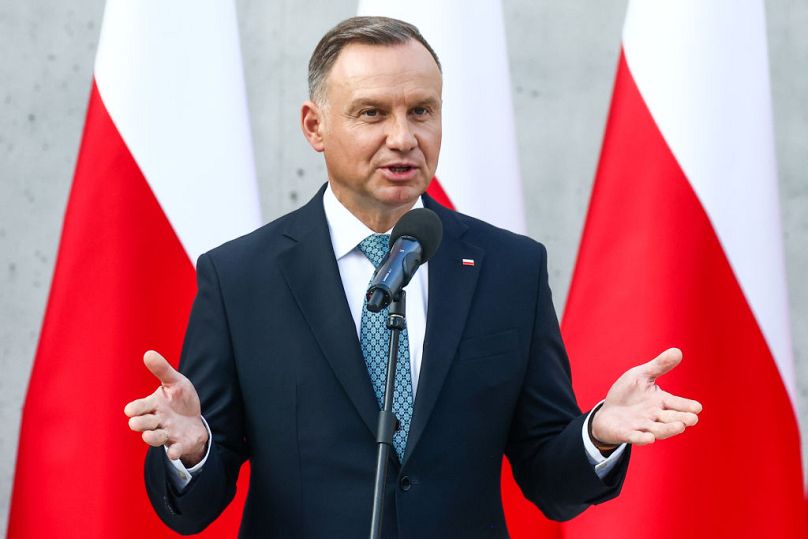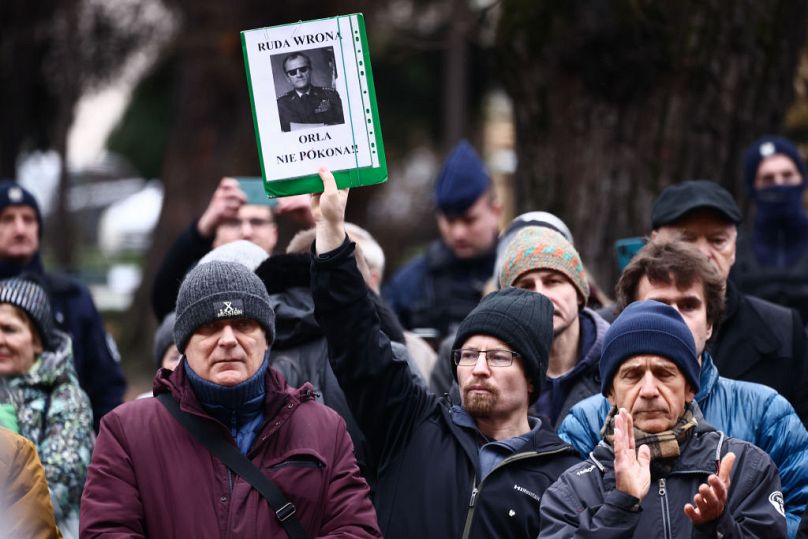The former president of the European Council and his coalition cabinet could face an uphill battle in the upcoming months.
He’s only been in office a matter of weeks, but Poland’s new prime minister Donald Tusk has not had an easy ride so far.
 ADVERTISEMENT
ADVERTISEMENT
 ADVERTISEMENT
ADVERTISEMENT
At the end of December, his pro-European government put state media into liquidation, after the country's president refused to sign off on funding.
Tusk is trying to free the public media from the political control of Law and Justice (PiS), which previously ruled Poland. However, President Andrzej Duda is an ally of the right-wingers.
This is likely just the start of Tusk's battle to disentangle Poland from PiS, which is accused of steering the country towards authoritarianism during its eight-year rule.
But can Tusk, a veteran politician and former European Council president, revert their legacy?
The reality seems less straightforward than Poland's new leader might have hoped.
Professor Aleks Szczerbiak, a professor of politics at the University of Sussex, tells Euronews that Tusk's supporters believe PiS has undermined Poland's democracy.
PiS deny this, and they instead claim it is “the current government’s actions - in, for example, sacking the management of Polish public broadcasting - that is authoritarian,” he explains.
While it has not yet become a systemic problem, autocratic corruption has partially worked its way into Poland's political system, following PiS's partisan take-over of the judicial council and public media.
That’s according to Wojciech Przybylski, president of Poland’s Res Publica Foundation.
He tells Euronews that the authoritarian turn was possible under the previous government because PiS won a "simple majority" in the 2015 election, allowing them to overcome power-balancing mechanisms that could have stood in their way.
Things are now different, however.
"The new government is comprised of several parties again - pluralism is restored in all branches of government," says Przybylski, suggesting democracy could improve as a result.
Still, Tusk will face many obstacles when disentangling Poland from the PiS.
His cabinet does not have a clear path to their vision of an ideal Poland laid out in front of them.
The PiS appointed its allies to a number of posts during its rule. Many are either constitutionally protected or legislation is required to dismiss or replace them.
That includes nearly 3,000 judges who were appointed since 2018.
Tusk’s government is, nevertheless, trying to change this.
President Duda and PiS ally wants Polish state TV to be managed by a body called the National Media Council, where there is a majority of Law and Justice appointees,” Szczerbiak tells Euronews.
He suggests legislation is needed to dissolve this body, but that could be veoted by Duda and Tusk's government doesn't have the three-fifths majority to overturn his veto.
As a result, Szczerbiak says Tusk is trying to find a workaround that doesn't involve legislation, though the politics professor added "even some critics of Law and Justice feel [this] is legally and ethically dubious.”
Poland will have a presidential election in 2025, meaning Tusk could eventually not have to worry about Duda frustrating his plans.
However, his coalition government is hugely diverse and mostly only united by their opposition to PiS.
Even if the coalition members can agree on their top priorities, which include setting up special parliamentary commissions to investigate alleged abuses of power under Law and Justice, the previous government will likely fight all such accusations.
A fractured country
Poland is also a divided nation at its core - and not just in government.
“The biggest programmatic disputes are likely to be over moral-cultural issues such as abortion, where the coalition is divided,” Szczerbiak says.
Some experts claim “the incoming coalition made very generous promises (some say over-promised) in order to win the election and it will struggle to implement all of these,” he continues.
Tusk’s government, for instance, has already shelved its election pledge to radically increase tax-free allowances.
Even outside of Poland, there are mounting problems for Tusk.
Not least the Ukraine war which is a significant - and delicate one - Przybylski tells Euronews.
“The most important thing as defined by this government is to mobilise full support of the West for the Ukrainian victory,” he says, adding “Russian aggression is an existential threat to Poland and the eastern flank of NATO.”
“The biggest challenge will be to balance out public finance in this context," Przybylski continues. "Electoral promises bring a number of additional social spendings while military expenses are quickly rising.”
While the present situation looks difficult for Poland’s new leadership - more uncertainty is ahead.
The picture may become clearer after local elections in April and European Parliament elections in June - but what isn’t clear is how much Tusk will be able to change during his first months in power.












